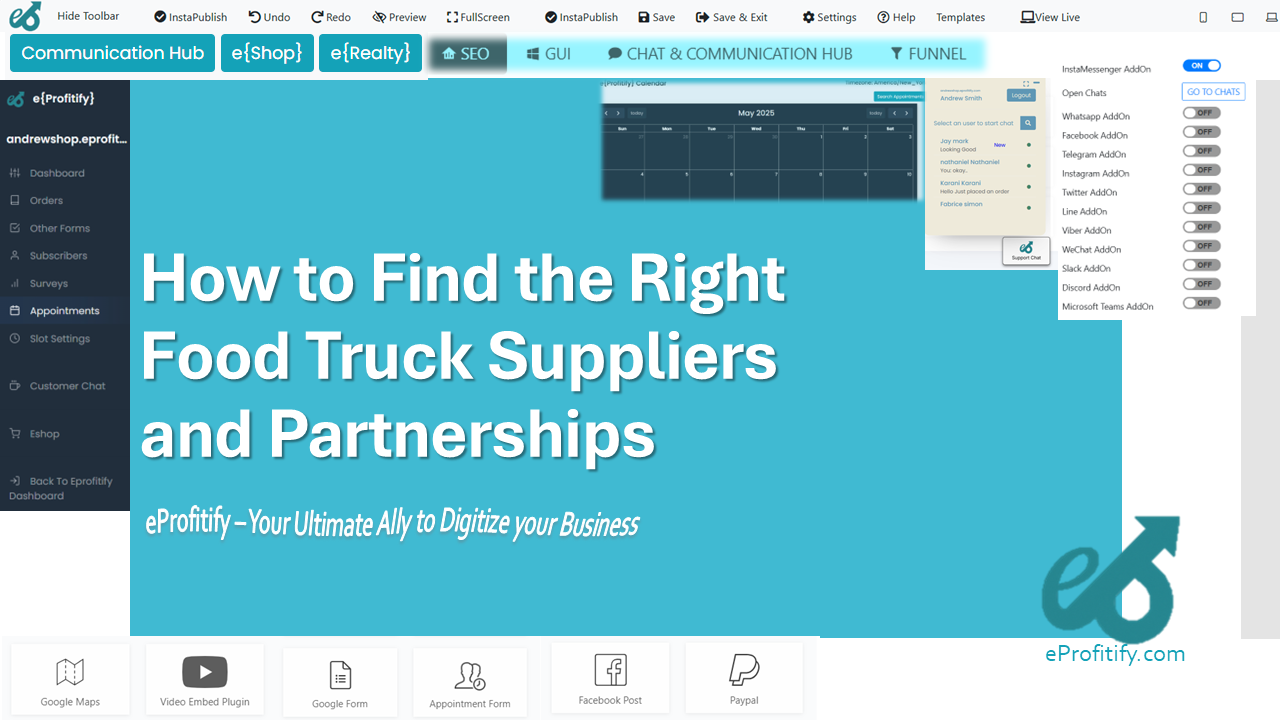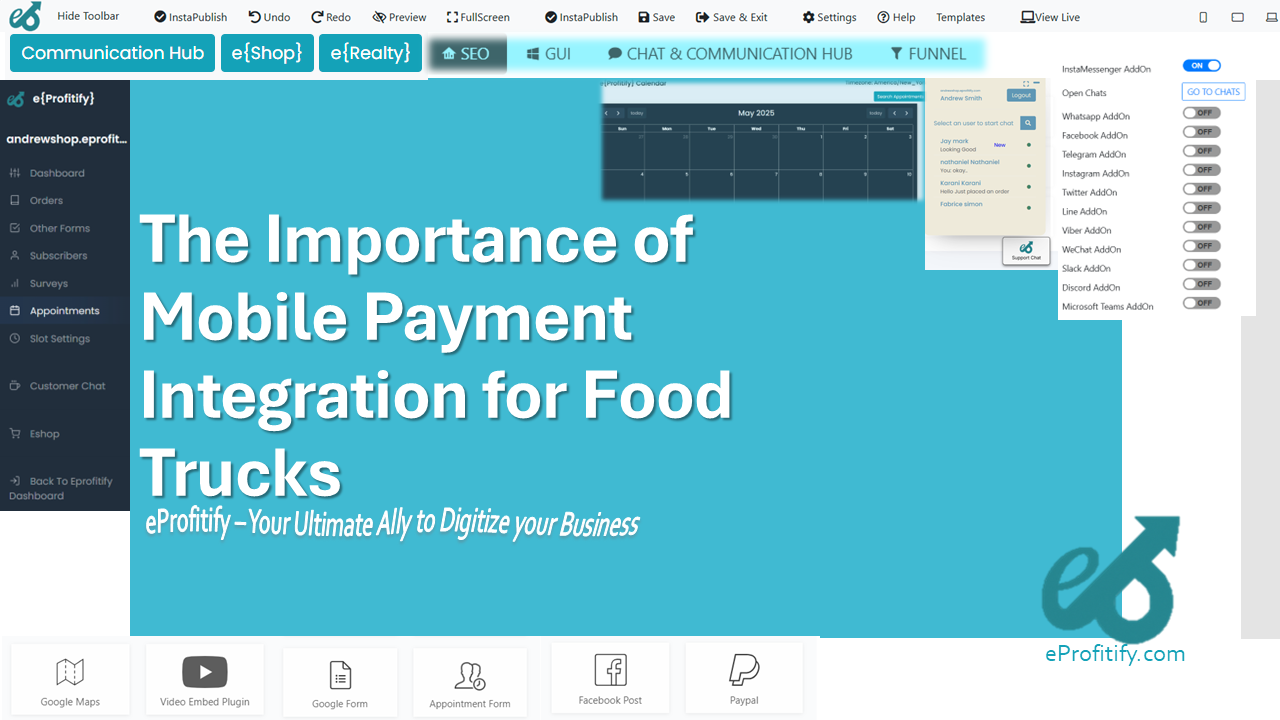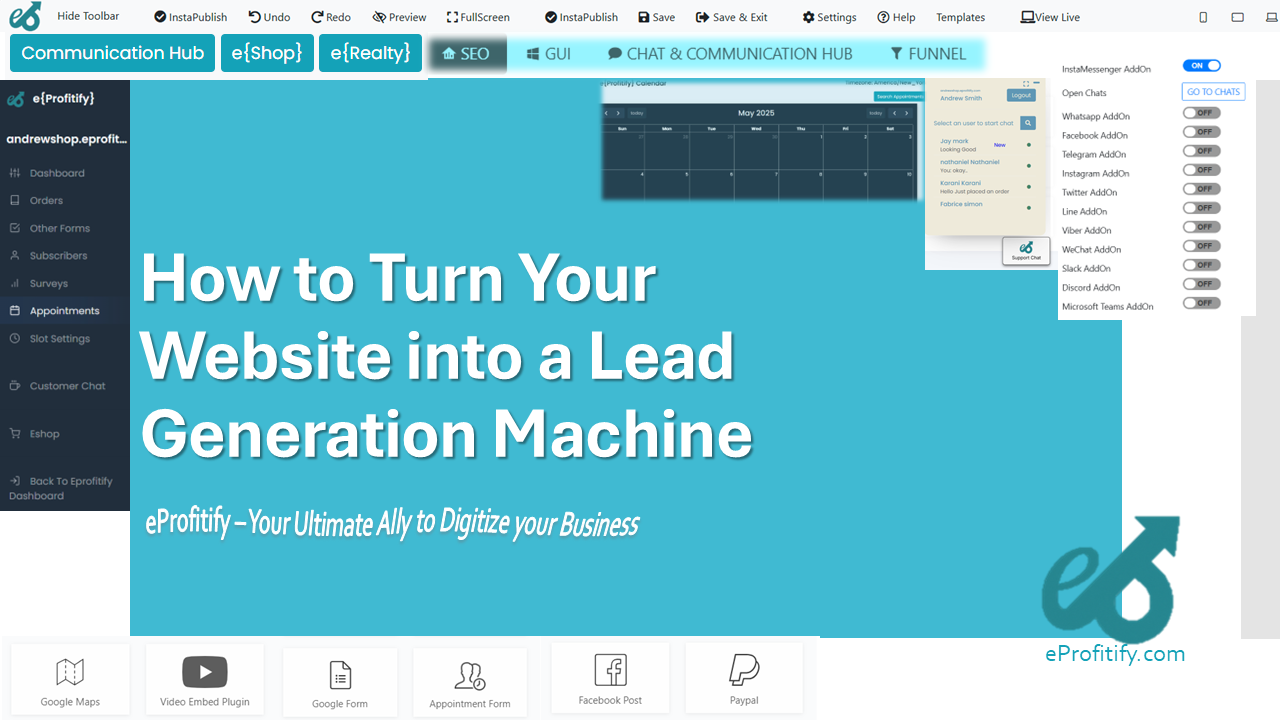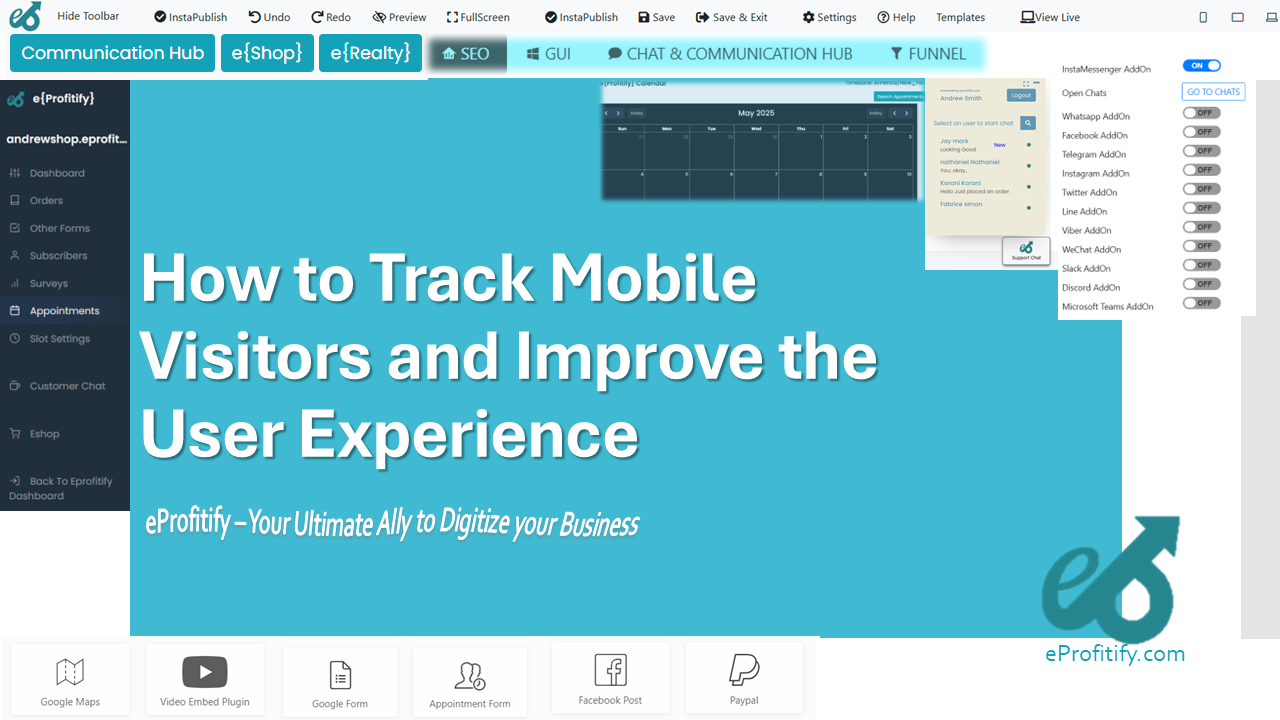How to Find the Right Food Truck Suppliers and Partnerships

Schedule a LIVE Zoom call with an eProfitify Expert.
How to Find the Right Food Truck Suppliers and Partnerships
The food truck industry is booming, with the U.S. market alone valued at $2.1 billion in 2023 and projected to grow at a 6% annual rate (IBISWorld). As competition intensifies, finding reliable suppliers and forging strategic partnerships is critical to maximizing efficiency, profitability, and customer satisfaction. In this guide, we outline actionable steps to identify the best suppliers, leverage partnerships, and adopt technology like eProfitify—a leading website and management tool—to streamline operations.
The Importance of Suppliers and Partnerships
Food trucks operate in a fast-paced environment where ingredient quality, cost management, and operational consistency directly impact success. A 2023 survey by Mobile Cuisine revealed that 67% of food truck operators prioritize local suppliers to ensure freshness and reduce costs. Meanwhile, partnerships with local businesses, event organizers, and technology providers help expand reach and optimize workflows.
How to Find Reliable Food Truck Suppliers
1. Local vs. National Suppliers
Local suppliers often offer fresher ingredients and faster delivery times, which is crucial for perishables. They also foster community relationships, potentially leading to exclusive deals. National suppliers, however, may provide lower prices for bulk orders. Consider a hybrid approach: source perishables locally and non-perishables from larger distributors.
Statistic: Over 72% of food trucks report reduced operational delays by partnering with local vendors (Food Truck Industry Report, 2024).
2. Use Online Directories and Marketplaces
Platforms like FoodTruckEmpire, Thomasnet, and Faire connect food trucks with vetted suppliers. Filters for location, product type, and reviews simplify decision-making.
3. Attend Trade Shows and Industry Events
Events like the National Food Truck Convention or local foodservice expos offer networking opportunities. Meeting suppliers face-to-face builds trust and allows for product sampling.
4. Seek Referrals and Reviews
Join food truck forums or social media groups to gather peer recommendations. Platforms like Yelp and Google Reviews also highlight supplier reliability and service quality.
Factors to Consider When Choosing Suppliers
- Reliability and Consistency: Late deliveries or stockouts can cripple operations. Verify supplier track records and backup plans.
- Cost and Payment Terms: Negotiate bulk discounts or flexible payment schedules. Aim to spend 30–35% of revenue on ingredients (industry benchmark).
- Quality and Safety: Ensure suppliers comply with FDA regulations and hold certifications like HACCP or ISO.
- Flexibility and Scalability: Can they handle seasonal demand spikes or menu changes?
Building Strategic Partnerships
1. Collaborate with Local Farmers and Producers
Sustainable sourcing resonates with eco-conscious consumers. Partnering with farms ensures fresher ingredients while supporting the local economy.
Statistic: Food trucks using locally sourced ingredients report a 15–20% increase in customer satisfaction (Sustainable Restaurant Association, 2023).
2. Team Up with Other Food Trucks
Share storage facilities, purchasing power, or marketing efforts. For example, group orders from suppliers can reduce costs.
3. Partner with Event Organizers
Secure prime spots at festivals or corporate events. Offer exclusive menus to attract crowds, boosting visibility.
4. Leverage Technology Providers
Tools like eProfitify simplify supplier coordination, inventory management, and customer engagement.
Leveraging Technology: The Role of eProfitify
Adopting technology is no longer optional—43% of food trucks now use management software to automate tasks (Toast Food Truck Report, 2024). eProfitify stands out as an all-in-one solution with features tailored for the industry:
- Instant Messaging: Communicate with suppliers in real time to resolve issues or adjust orders.
- Appointment Management: Schedule deliveries, meetings, and maintenance seamlessly.
- Ecommerce Integration: Sell merchandise or pre-orders online, diversifying revenue streams.
- CRM Tools: Track supplier interactions, monitor payment histories, and manage customer feedback in one place.
- Analytics Dashboard: Analyze sales trends and supplier performance to optimize purchasing decisions.
Case Study: A Miami-based taco truck reduced ingredient waste by 30% using eProfitify’s inventory tracking and automated reorder alerts.
Conclusion
Success in the food truck industry hinges on three pillars: reliable suppliers, strategic partnerships, and smart technology. By prioritizing local vendors, negotiating favorable terms, and partnering with event organizers or farms, operators can enhance their brand and profitability. Integrating tools like eProfitify further streamlines operations, allowing you to focus on what matters most—delivering exceptional food and experiences.
In an industry where margins are tight and competition fierce, the right suppliers, partners, and technology stack make all the difference. Start building those relationships today, and let tools like eProfitify propel your food truck toward long-term success.







